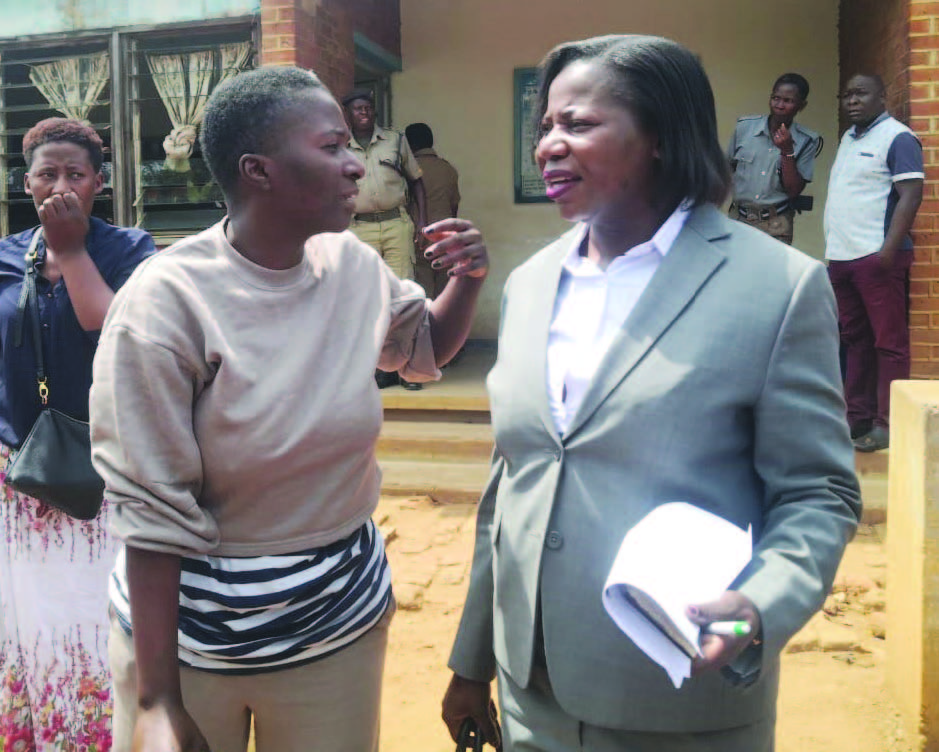The past week has been a cocktail of events. On December 9, Malawi joined the rest of the world to commemorate the fight against corruption with various activities aimed at increasing awareness about corruption and the need to eliminate the vice in our society. It was also an opportunity for the country to reflect on corruption and showcase achievements in the implementation of the National Anti- Corruption Strategy. Unfortunately, the ambiance of the occasion was fouled by sad developments suspected to be orchestrated by elements in our society that never sleep as they relentlessly execute their criminal schemes. On December 6, the country woke up to the news that Anti-Corruption Bureau director general Martha Chizuma had been arrested on very mysterious charges that were later dropped.
The discussion today is not necessarily about passing judgment on who is right or who is wrong in the arrest of Chizuma. No! There are more competent people out there who shall one day break down the whole puzzle and disperse the cloud of speculation from our minds. However, while we ponder quietly or loudly about the recent developments, we must pay attention to the manner of the arrest of Chizuma and decide whether at all there is anything we can learn about corruption and the character of those that thrive on corruption.
Last week, as we mused on the importance of political will in the fight against corruption, we were also conscious of the fact that those that commit to anti-corruption must master the art of working with a double-edged sword, metaphorically. The recent story of Chizuma illustrates this assertion that one cannot be in the anti-corruption battle line and come out unbruised. I am therefore certain that she is not oblivious about the “importance” of the “corruption value-chain” in the “economic interests” of criminal cartels and networks that make a living out of corruption.
There is a reason why the team of policemen and women who raided Chizuma’s house came at 4 o’clock in the morning. There is also a reason why they chose to arrest Chizuma in an overkill fashion in the presence of her young children. The manner of this operation was not just a product of an overzealous commanding officer. It was well planned and probably rehearsed in the middle of the night. It was meant to stamp an indelible statement that would intimidate her and break her passion and mental resolve to the fight against corruption.
Obviously, to succeed in this operation, that team of policemen and women must have stayed awake the whole night, planning and preparing.
Why would a group of police officers sacrifice sleep in order to arrest Chizuma, a mother of young children, who did not pose any threat of resisting arrest? The reason is simple.
Corruption is BIG currency to many criminal-minded people and the stakes are just too big to be left to chance. Through corruption people pay for lavish lifestyles, they pay school fees and build mansions in posh neighbourhoods. Corruption pays for the freedom of suspected criminals and is the reason some have remained unprosecuted or free even when it was obviously clear that they were guilty. Corruption pays for money laundering cartels to transfer huge sums of dirty money across the borders through networks of professionals that aid and abet criminal activities. Corruption also pays for undeserving leaders to sit in various positions of power and privilege.
We should therefore not be surprised that while the rest of the country was sleeping on the eve and the morning of December 6 2022, some Malawians never slept as they conspired to carry out an unnecessary and insensitive arrest. It is expected in a world where corruption is a currency that must be protected at any cost. Those that aid and abet criminal activities cannot afford to sleep a wink when they know the long arm of the law is after them.
The post Corruption never sleeps appeared first on The Nation Online.
 Moni Malawi
Moni Malawi 
